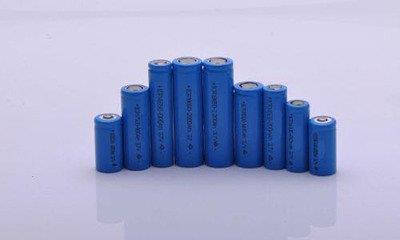1. Frequent fast charging accelerates the polarization of the battery cell
When the continuous charging current is large, the ion concentration on the electrode increases and the polarization intensifies, and the terminal voltage of the lithium-ion battery cannot be directly proportional to the charge\/energy. At the same time, when charging with a large current, the increase in internal resistance will cause Joule The side reactions that exacerbate the heating effect, such as electrolyte reaction decomposition, gas production and a series of problems, the risk factors suddenly increase, which will affect the safety of the battery and the life of the non-power battery will be greatly shortened.
2, Frequent fast charging may cause the battery to crystallize
The rapid charging of lithium-ion batteries means that lithium ions are released rapidly and "swim" to the negative electrode, which requires the positive electrode material to have the ability to quickly intercalate lithium. Since the embedding potential of lithium is similar to that of lithium precipitation, it can be used during fast charging or Under low temperature conditions, lithium ions may precipitate on the surface to form dendritic lithium. Dendritic lithium will penetrate the film, causing secondary loss of lithium and reducing battery capacity. When lithium crystals reach a certain amount, they will grow from the cathode to the separator, There is a risk of short-circuiting the battery.

3, Frequent fast charging will shorten battery life
Frequent charging is also easy to accelerate the consumption of lithium-ion battery life, and even lead to reduced battery activity and shortened battery life. Especially after adding fast charging technology, although the initial charging speed is very fast, it is not pulled out when it reaches 100%. It causes multiple charging and increases the cycle times of the battery. Long-term use of this technology will reduce the activity of the battery and accelerate the aging of the battery.
High temperature is the killer of lithium-ion battery aging. The high power of fast charging will cause the battery to heat up in a short time. Although the power of non-fast charging is low and the heat per unit time is low, it requires a long power-on time. Therefore, the battery heat will also Accumulated over time, the difference in heat generated during charging is not enough to cause a difference in battery aging rate.
To sum up, fast charging has high requirements on the quality of the battery, a great loss of battery life, and a greatly reduced safety factor, so try to charge as little as possible when it is not needed. Frequent and fast charging of the battery will cause damage to the battery. However, due to the difference in lithium-ion battery cell density, material, ambient temperature and battery management system, the damage degree of the battery during the fast charging process is also different.
At present, most lithium-ion batteries will design a reasonable charging strategy according to the remaining battery power, battery performance and other factors. By adjusting the charging power, the damage caused by fast charging to the battery can be reduced to the bottom. Therefore, if you use fast charging occasionally, users do not have to Too worried about damaging the battery!

